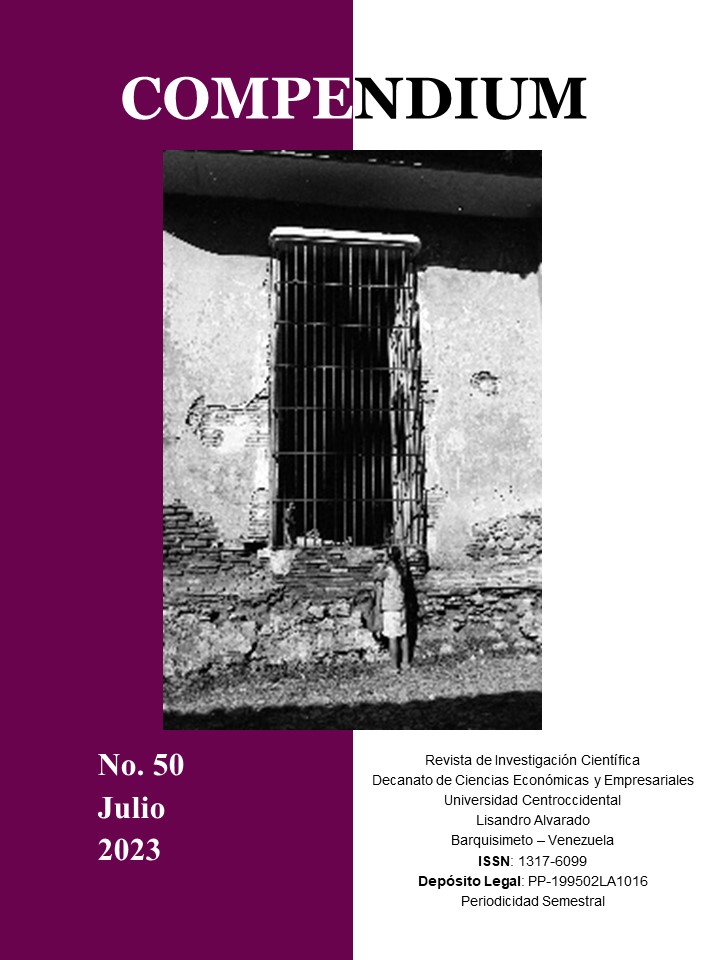Human Development and Agenda 2030 in Ecuador: Meanings about the educational management praxis and its challenges for the 21st century
DOI:
https://doi.org/10.5281/zenodo.10270951Abstract
In an era in which inequalities persist and with a majority of poor countries, it is urgent to expand opportunities for people in conditions of equity, sustainability and deepening of democracy. The education sector plays an important role in advancing towards a fairer world, with development and freedom, so that people can achieve valuable goals. The research was conceived from a socio-constructionist ontoepistemic perspective, starting from the discursive current of the discursive practices method and the in-depth interview technique. It is consubstantiated with the theory of human development and the Agenda 2030. We approach the narratives of six managers of the education sector, their praxis and the way in which from such narratives they build their realities and reflect on the challenges for human development and the Agenda 2030. Among the findings it was found that the instrumental freedoms of social opportunities, protective security and transparency guarantees are very limited. Little progress in the development of capacities and public policies in the sector.
Downloads
References
Camacho, F. (2019). Justicia, democracia y capacidades: reflexiones éticas sobre el buen gobierno desde el enfoque del desarrollo humano. En Centro Latinoamericano de Administración para el Desarrollo. Integridad y ética en la función pública (139-178). Venezuela. Recuperado de: https://cidseci.dgsc.go.cr/datos/Integridad%20y%20Etica2.pdf
Banco Mundial (2020). Banco Mundial en América Latina y el Caribe. Recuperado de: https://www.bancomundial.org/es/region/lac/overview
Ibáñez, T. (1994). Psicología social construccionista. México: Trillas.
Nussbaum, M. (2018). Las mujeres y el desarrollo humano. España: Herder.
Organización de Naciones Unidas (2015). Objetivos de Desarrollo Sostenible. Recuperado de: https://www.un.org/sustainabledevelopment/es/objetivos-de-desarrollo-sostenible/
Programa de Naciones Unidas para el Desarrollo (2022a). Informe sobre desarrollo humano. Recuperado de: https://report.hdr.undp.org/es/intro/
Programa de Naciones Unidas para el Desarrollo a (2022b). Múltiples crisis frenan el desarrollo humano en todo el mundo. Recuperado de: https://www.undp.org/es/ecuador/comunicados-de-prensa/multiples-crisis-frenan-el-desarrollo-humano-en-todo-el-mundo
Sander, B. (2001). Gestión educativa en América Latina. Construcción y reconstrucción del conocimiento. Buenos Aires: Troquel.
Schettini, P. y Cortazzo, I. (2015). Análisis de datos cualitativos en la investigación social. Argentina: Facultad de Trabajo Social, Universidad de La Plata.
Sen, A. (2018). Desarrollo y Libertad. Argentina: Editorial Planeta.
Spink, M. (2013). Práticas discursivas e producao de sentidos no cotidiano. Brasil: Centro Edelstein de Pesquisas Sociais Universidade de Sao Paulo.
Valles, M. (1999). Técnicas cualitativas de investigación social. España: Editorial Síntesis.
Published
How to Cite
Issue
Section
Copyright (c) 2023 Segundo Eleodoro Viveros Borja, Francy Lisseth Montoya Gámez , Francisco Camacho

This work is licensed under a Creative Commons Attribution-NonCommercial-NoDerivatives 4.0 International License.




